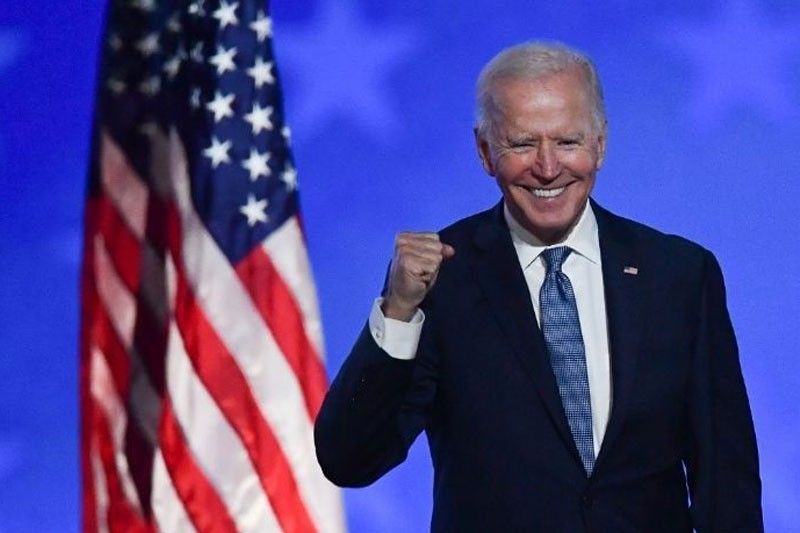US Electoral College rules on Biden victory

WASHINGTON – Long a mere formality, a vote on Monday by members of the Electoral College to formally recognize Joe Biden as the next US president has taken on unusual import this year with Donald Trump stubbornly refusing to admit defeat.
The results of the Nov. 3 vote have been certified by each of the 50 states and the District of Columbia; the Democrat won with a record 81.3 million votes, or 51.3 percent of those cast, to 74.2 million, or 46.8 percent, for the Republican president.
But in the United States, the occupant of the White House is chosen by indirect universal suffrage, with each state allocating its electors – whose numbers are essentially based on population – to the candidate who carried the state.
The results confirm an easy victory for Biden, with 306 of the 538 electoral votes, to 232 for Trump, with 270 required for election.
Electoral College members meet Monday to formalize the process, though the electors actually meet separately in each state.
Biden will then deliver a speech in the evening to celebrate the latest confirmation of his win and “the strength and resilience” of US democracy – a clear jab at Trump’s unprecedented stance.
Electors are local political officials or activists, civil society figures or friends of candidates.
Most are unknown to the wider public, though national personalities occasionally take part – like Hillary Clinton, who lost to Trump in the 2016 election but who will vote Monday in New York to confirm President-elect Biden and Vice President-elect Kamala Harris.
No Trump concession
Although there have been a few “faithless electors” in past years – who cast votes for someone other than the candidate who won their state – there have never been enough to change an election outcome.
So Biden’s victory will become all the more official on Monday.
But Trump, still the legal occupant of the White House until Jan. 20, has continued to make baseless assertions that the November vote was the “MOST CORRUPT ELECTION IN U.S. HISTORY,” as he tweeted yet again on Sunday.
He added: “How do states and politicians confirm an election where corruption and irregularities are documented throughout?”
In fact, his campaign has not been able to document any widespread fraud, and its legal challenges to the vote – in dozens of suits, heard by scores of judges – have virtually all been dismissed, often in scathing language.
An ultimate humiliation
In an ultimate humiliation, the US Supreme Court – despite having a conservative majority assured by three Trump appointees – on Friday bluntly refused to even consider two Republican challenges to the vote.
Large numbers of Republican lawmakers are on record as backing Trump’s false claims of fraud.
Some may finally be willing to recognize Biden’s victory once the Electoral College ratifies it.
But with polls showing that as few as one in four Republican voters accept the election results as valid, Trump is not expected to give in anytime soon.
- Latest
- Trending




























